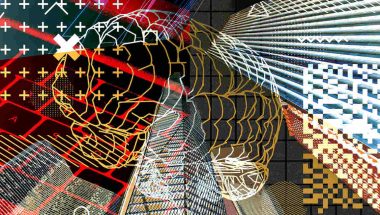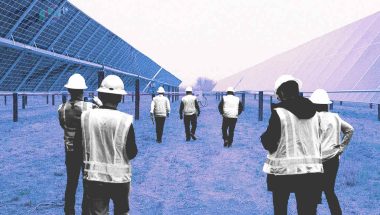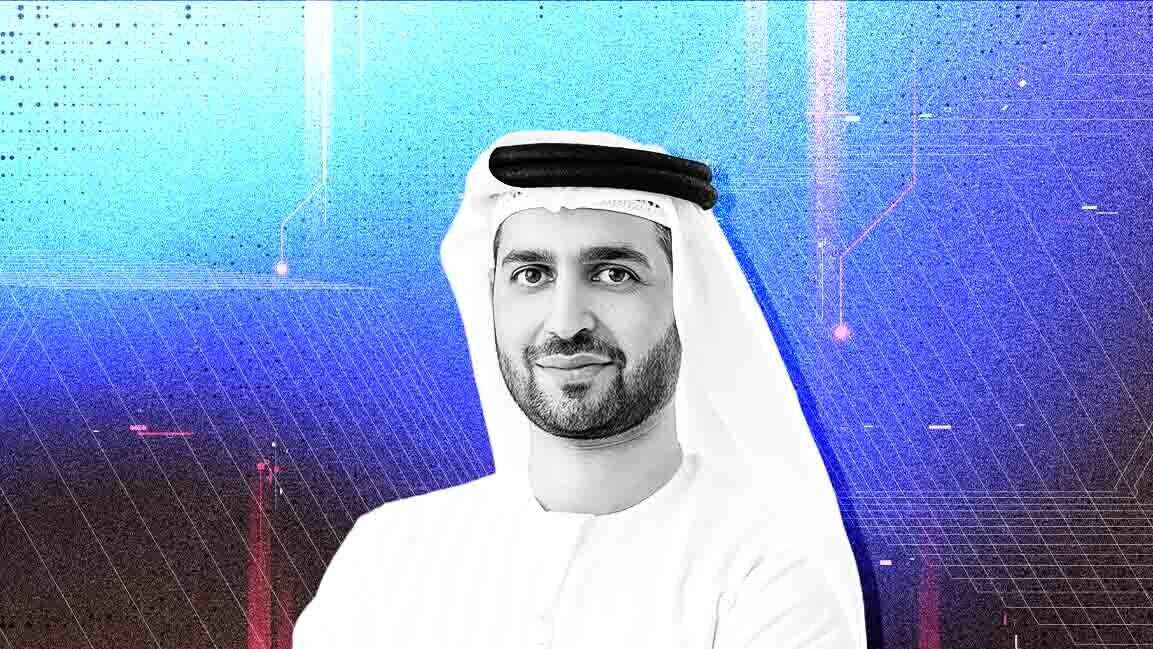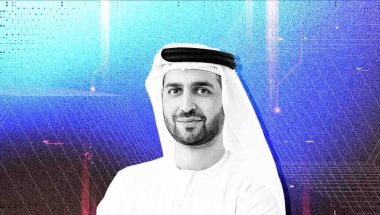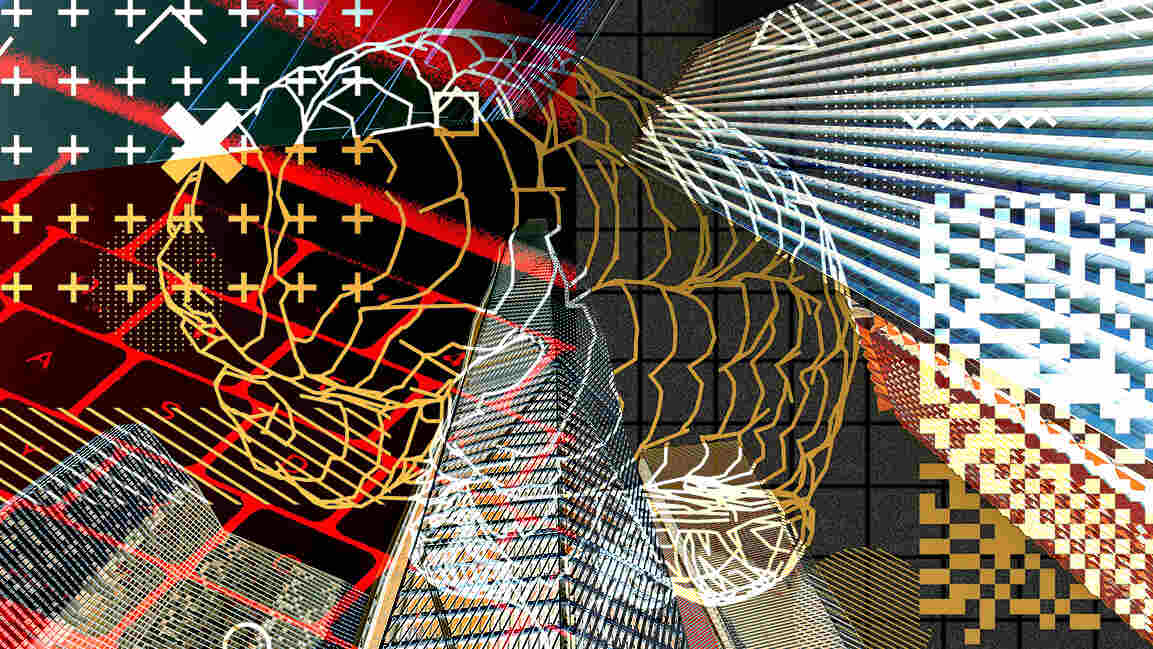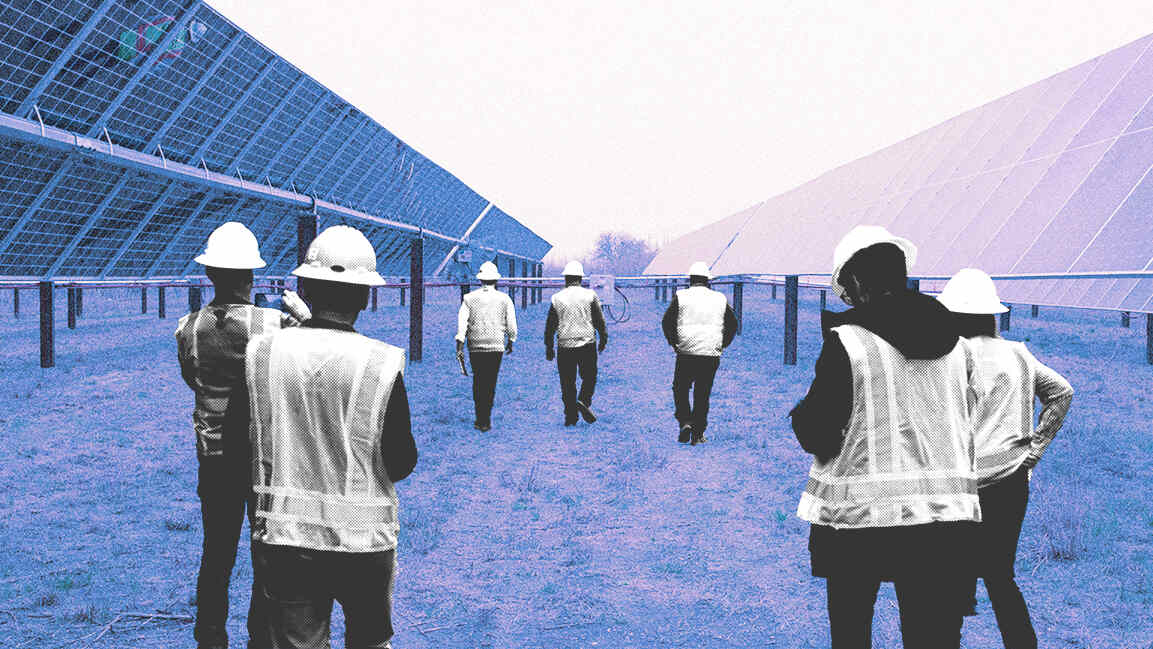- | 9:00 am
The UAE has global AI ambitions. And a long-term strategy to match
In a push to become a global AI player, the country is leveraging its strong relations with the US to secure access to technology.

Of all the changes AI has brought about, the anticipation-filled scrolling of the recent AI-related news takes the cake.
- The UAE will build the biggest AI campus outside the US.
- OpenAI will help the UAE develop one of the world’s biggest data centers.
- The UAE launched Falcon Arabic to capture the full linguistic diversity of the Arab world.
- UAE rolls out AI for schoolkids.
- UAE embeds AI at the heart of the new federal government strategy cycle.
- Abu Dhabi is set to become the world’s first fully AI-powered government by 2027.
- UAE launches AI-powered budget cycle to drive strategic development.
The UAE is hooked on AI. Now, step back and zoom out; you can see what got the country here.
These developments are part of a long-term strategy to position the country as a global leader in AI. The government believes this will enhance geopolitical influence, diversify the economy, and establish itself as a technological powerhouse.
And now, there’s a noticeable difference. It’s in the big league as the race to develop AI technologies accelerates worldwide, pouring billions of dollars into the AI market within the next decade.
“The UAE is well-positioned to achieve its vision to become one of the leading nations in AI by 2031, with strategic investments and policy frameworks accelerating its AI capabilities,” says Lisa Lyons, Regional Transformation Centre of Excellence Lead, Mercer IMEA.
THE EVER-STRENGTHENING AI ALLIANCE
In a push to become a global AI player, the country is leveraging its strong relations with the US to secure access to technology. In fact, AI was a central theme during President Trump’s recent visit to the country in May.
The two countries have been allies for half a century, and Abu Dhabi embraced Trump with unprecedented investment pledges, totalling over $200 billion, many of which focused on AI. The ever-strengthening AI alliance — to which hundreds of billions of dollars have already been committed — is a major win for the UAE.
“President Trump’s visit was a significant milestone for the UAE. Not only did they forge projects, they also sent a powerful message about the UAE’s growing influence on the global tech stage,” says Josh Gilbert, Market Analyst at eToro.
The UAE and the US signed an agreement for the Gulf country to build the largest AI campus outside the US. The 26-sq-km site in Abu Dhabi will eventually host 5 gigawatts of data centers.
OpenAI, Oracle, Nvidia, and Cisco Systems will help build the AI campus. The companies said an initial 200-megawatt AI cluster should launch in Abu Dhabi next year.
Most importantly, the recent deal with the US means the UAE can access many of Nvidia’s latest chips, American technology, and software.
“The UAE is moving beyond ambition to action as its vision to become a global AI hub materializes,” says Jad Haddad, Global Head of Quotient – AI by Oliver Wyman. “The recent announcement of a 5GW data center project highlights the UAE’s commitment to lead AI innovation rather than merely follow.”
This, Haddad adds, signals a shift from strategy to tangible results, “with a focus on sovereign cloud services and next-generation AI model training.”
While initiatives like building the world’s largest AI campus outside the US in Abu Dhabi is a landmark achievement that cements the UAE’s position as a serious global AI contender, Lyons says, “But beyond the physical scale, it’s a signal of intent – creating a hub where innovation, research, and most importantly, skills development can thrive.”
In a press statement, Oracle’s CTO and chairman, Larry Ellison, said this first-in-the-world platform will “enable every UAE government agency and commercial institution to connect their data to the world’s most advanced AI models.”
Jensen Huang, CEO of Nvidia, said the project in the UAE would “power the country’s bold vision—to empower its people, grow its economy, and shape its future.”
GAME-CHANGER FOR AI AMBITIONS
The first phase of a massive new AI data center in Abu Dhabi will likely come online with 100,000 Nvidia chips. And access to cutting-edge chips is a game-changer for the UAE’s AI ambitions. According to reports, Nvidia’s Grace Blackwell GB300 systems, which are currently the most advanced AI servers Nvidia offers, will be used.
“These processors are the backbone of training large-scale AI and generative models, and their availability will accelerate the UAE’s AI ecosystem at scale,” says Haddad.
“Securing these advanced chips marks a strategic inflection point. It enables the UAE to move from simply adopting AI solutions to creating and exporting advanced models and applications across sectors such as healthcare, energy, and finance.”
These chips are essential for training and running the kind of AI models that power everything from autonomous vehicles to medical research to language models like ChatGPT.
What sets the UAE apart, Haddad adds, is its ability to combine this compute power with abundant, low-cost renewable energy, providing a sustainable edge for high-intensity AI workloads. “Enhanced global connectivity further reduces latency, ensuring the country can deploy AI solutions rapidly and at scale.”
DEVELOPMENT OF LLMs
The UAE’s AI investments also include the development of Arabic language chatbot applications similar to OpenAI’s ChatGPT. The development of its large language model (LLM), Falcon AI, represents a major step for the region in AI development.
The lack of high-quality Arabic language content presents an opportunity for the country to develop its database and AI models. The reasoning is straightforward: by building these models, the country will increase the potential market for the 400 million Arabic speakers to purchase its products. The emirate is more interested in making its businesses more efficient.
Falcon Arabic, developed by Abu Dhabi’s Advanced Technology Research Council recently, aims to capture the full linguistic diversity of the Arab world through a “high-quality native Arabic dataset,” a statement said. It also matches the performance of models up to 10 times its size.
“Today, AI leadership is not about scale for the sake of scale. It is about making powerful tools useful, usable, and universal,” Faisal Al Bannai, ATRC secretary general, said in the statement.
ATRC also launched Falcon H1, which it said outperforms competitors from Meta and Alibaba by reducing the computing power and technical expertise traditionally required to run advanced systems.
DRIVING THE AI INVESTMENT PUSH
Several state-linked vehicles are driving the UAE’s AI investment push.
The AI campus will be built by Abu Dhabi state-backed firm G42, which has already secured a $1.5 billion investment from Microsoft, partnered with chipmaker Nvidia, and uses supercomputers built by Cerebras Systems.
G42 and MGX, an Abu Dhabi investment firm, have also invested in US firms such as OpenAI and Elon Musk’s xAI. G42 is also developing AI applications in the healthcare, space, and data sectors via offshoots like M42, Space42, and Core42.
Meanwhile, Abu Dhabi sovereign wealth fund Mubadala has been making major investments in AI and the infrastructure supporting burgeoning technology, including in data centers and leading technology firms like OpenAI.
Last October, the $330 billion wealth fund took part in OpenAI’s fundraising round, which raised $6.6 billion. That same month, Mubadala and AI company G42 announced a partnership with OpenAI to develop AI in the UAE and regional markets.
While many may have reservations about the UAE’s pursuit of AI, what is crucial is that the UAE has both the financial resources to fund expensive AI research and a government committed to advancing its development.
In an interview with Reuters last July, Cerebras CEO Andrew Feldman said, “They’re among the leaders today, and they’re on a path to the very top.”
EQUIPPING TALENT WITH AI SKILLS
However, analysts say the country’s success as an AI hub will be determined by how effectively it nurtures and deploys future-ready skills. Equipping talent with AI skills is the linchpin in transforming ambition into sustainable leadership.
The recent announcement to make AI mandatory in government schools across all educational levels, from kindergarten to Grade 12, is part of the UAE’s strategy to prepare future generations for a technologically advanced world.
“The announcement of a government partnership to train over 10,000 individuals by 2030 and equip the emirate’s workforce for the age of AI makes a lot of sense,” says Lyons. “Ultimately, people will determine whether new technologies become transformational tools for the betterment of societies.”
To unlock AI’s full potential, Lyons adds, “It is critical that individuals and organizations are ready to apply AI meaningfully and responsibly across sectors. That’s where the true competitive edge lies.”
OPTIMISM AND CHALLENGES
There’s optimism about AI’s future and the UAE’s ability to leverage its investment strategy to take advantage of it.
“The UAE’s push to lead the global AI charge is becoming a reality, backing its vision with serious investment and partnerships that are being noticed globally,” says Gilbert.
If all the proposed AI deals and initiatives in the UAE come together, experts say it could become a third power center in global AI competition after the US and China. However, there are challenges. The US remains cautious about the UAE’s close relationship with China, and major Chinese firms Huawei and Alibaba Cloud remain active in the Gulf state.
“The UAE maintains strong relationships with both the US and China, but walking that diplomatic tightrope becomes harder as competition intensifies. Striking the right balance will be important to continued access to cutting-edge technology from both sides,” says Gilbert.
“Washington has made it clear that close cooperation with Chinese tech firms could limit access to American technologies, particularly when it comes to sensitive sectors like AI and semiconductors.”








